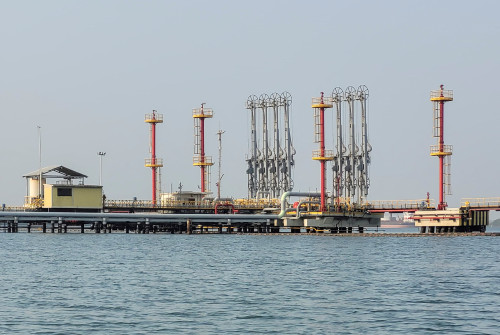By Nelson Bocanegra
BOGOTA (Reuters) – Lower oil prices could reduce Colombian state-run oil firm Ecopetrol’s profits by up to 12 trillion pesos ($2.76 billion) this year, the company’s president warned on Friday.
Ecopetrol may also have to scrap production at some fields and focus on those with lower costs, president Ricardo Roa told journalists on the sidelines of an industry event.
Crude oil prices were headed for their second-consecutive weekly loss on Friday, with Brent futures at $63.45 a barrel, on concerns of an intensifying trade war between the United States and China.
“We already have a first list of fields that have a break-even point close to that price, so we’ll have to eliminate them and focus on those with lower costs,” Roa said.
Roa added that around 20 to 30 fields could be at risk of closure. Ecopetrol operates 158 fields, although the executive cautioned that the fields on the chopping block were not major producers.
It was unclear how much of a production hit their closure could represent.
“As the price of oil drops, the company will need to monitor that number and make decisions regarding eventual closures of other fields that might not be profitable,” Roa said.
Beyond the hit to production, the lower crude prices translate into a huge hit for Ecopetrol’s profits, he added.
Each dollar difference on the international market means a 900-billion-peso hit to EBITDA (earnings before interest, taxes, depreciation and amortization) and a 700-billion-peso hit to net profit, Roa added.
“If we were considering (oil prices at) $73 a barrel and now they’re at $63, then we have a difference of 12 trillion pesos in price.”
Ecopetrol’s profits are key to Colombia’s economy, which is facing increasing fiscal pressure as tax revenues slip, forcing the government to boost its debt and cut spending.
NATURAL GAS BOOST
Separately on Friday, Ecopetrol announced it would launch two new natural gas sale processes this year.
Starting in June, the state-run firm will sell additional natural gas produced locally, while in July it will start sales on gas imported through the Buenaventura port.
Natural gas from an offshore block jointly operated with Brazilian state-run producer Petrobras should come on the market at the end of this year, with the potential to meet around 14% of Colombia’s current demand for the energy source.
(Reporting by Nelson Bocanegra and Carlos Vargas; Writing by Rafael Escalera Montoto; Editing by Chizu Nomiyama)


